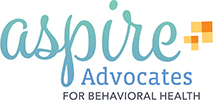Already in Place:
- $3.6 million dollars of opioid settlement funds allocated at the state level to ensure the RHS is a public school open to students across the region
- The backing of Missouri’s elected leaders, along with strong support from the Department of Mental Health (DMH) and the Department of Elementary and Secondary Education (DESE)
What We Need:
- A visionary host school district to serve as the fiscal agent for this initiative
- A robust referral and support network to connect and uplift students
- An engaged and passionate community committed to nurturing and supporting this vital resource, both now and well into the future
Why does St. Louis need a Recovery High School?
Surroundings matter, especially to teens. Exposure to and access to alcohol or other drugs “normalizes” substance abuse and makes it “the thing to do”. Studies indicate that 60 to 70 percent of students with addiction problems relapse upon returning to their former high schools after treatment. Spending time in places where they previously used drugs or seeing friends they’ve used drugs with can trigger relapse. Academic demands and intense course work can also contribute to the temptation to use substance abuse as an escape from stress.
Are Recovery High Schools effective?
There are currently 44 recovery high schools nationwide, with some operating successfully for over 30 years. Research from the National Institutes of Health (NIH) highlights the significant benefits of recovery high schools, including higher graduation rates and improved long-term sobriety among students. Conversely, substance abuse is more prevalent among high school dropouts and is strongly linked to continued substance use later in life.
Why Aspire?
Aspire is an organization that is made up of teens, young adults, and parents with lived experience. Our mission is to improve the identification, treatment, and reimbursement of behavioral health services for young people. Aspire members began working on the RHS project when it was still a piece of legislation, and we are proud to say that we brought the voices of people with lived experience to Jefferson City to help get the bill passed. Since the bill passed, we have worked with DMH, DESE, volunteers and local school districts in an effort to get this project off the ground.
Thanks to a grant from St. Louis County Children’s Service Fund (CSF), we are able to fund a RHS Project Manager/Outreach Specialist, a DEI Community Outreach Specialist, and a nationally-recognized RHS subject matter expert to provide additional support to the RHS Steering Committee and RHS host district.
Active Legislation
HB1386 Flyer
HB1386 Information
Resources
St. Louis Area RHS Info
RHS/RCO Timeline
Association of Recovery Schools
Check out other Recovery High Schools
5280 High School – Denver, Colorado
Ostiguy High School – Boston, MA
P.E.A.S.E. Academy – Minneapolis, MN




